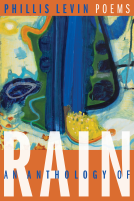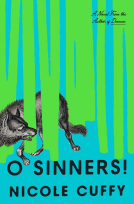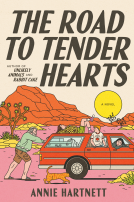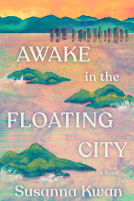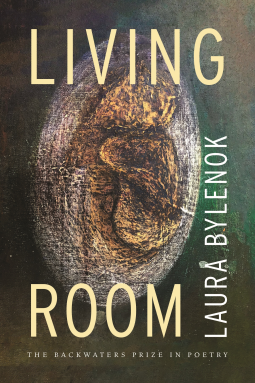
Living Room
by Laura Bylenok
This title was previously available on NetGalley and is now archived.
Send NetGalley books directly to your Kindle or Kindle app
1
To read on a Kindle or Kindle app, please add kindle@netgalley.com as an approved email address to receive files in your Amazon account. Click here for step-by-step instructions.
2
Also find your Kindle email address within your Amazon account, and enter it here.
Pub Date Oct 01 2022 | Archive Date Sep 30 2022
University of Nebraska Press | The Backwaters Press
Talking about this book? Use #LivingRoom #NetGalley. More hashtag tips!
Description
Finalist for the 2023 Eric Hoffer Book Award
Deeply phenomenological and ecological, Laura Bylenok’s poems in Living Room imagine the lived reality of other organisms and kinds of life, including animals, plants, bacteria, buildings, and rocks. They explore the permeability of human and nonhuman experience, intelligence, language, and subjectivity. In particular, the poems consider so-called model organisms—nonhuman species studied to understand specific and often human biological processes, diseases, and phenomena—as well as an experience of self and world that cannot be objectively quantified. The impulse of these poems is to slow down, to see and feel, and to listen closely. Language becomes solid, palpable as fruit. Long lines propel breath and push past the lung’s capacity.
Life at a cellular level, synthesis and symbiosis, is revealed through forests, fairy tales, and vines that grow over abandoned houses and hospital rooms. A living room is considered as a room that is lived in and also a room that is alive. Cells are living rooms. A self is a room that shares walls with others. Interconnection and interplay are thematic, and the network of poems becomes a linguistic rendering of a heterogeneous and nonhierarchical ecosystem, using the language of biology, genetics, and neurochemistry alongside fairy tale and dream to explore the interior spaces of grief, motherhood, mortality, and self.
Advance Praise
“Living Room is an absolute phenomenon, a complete synthesis of science, emotion, deep ecology, and poetry. Laura Bylenok has given us an astonishing view of life in a post-anthropocentric world.”—Huascar Medina, poet laureate of Kansas and literary editor of seveneightfive magazine
“Chemistry sings, and biology sings, and mitochondria sing, and maize sings, and genomes sing, and the borders of us and not us sing, and living rooms sing, and stories sing, and glass sings, and fur sings, and bodies sing, and sometimes these things sing of pain, and other times they sing disintegration, and other times they sing of beauty or of living or of the bright lens of loss, and most of those times they sing all of these things at once. I am speaking of course of Laura Bylenok’s Living Room which you should read immediately.”—Ander Monson, author of I Will Take the Answer and Predator
Available Editions
| EDITION | Other Format |
| ISBN | 9781496232366 |
| PRICE | $17.95 (USD) |
| PAGES | 64 |
Featured Reviews
It’s hard to review a book of poetry because it is my belief that poetic writing is so deeply subjective. Living Room is an eclectic collection of poetry that brings an artistic spin to biological functions and general chemistry.
Some poems I found myself struggling to read based on the chosen syntax. Some poems had me highlighting nearly every like because the ideas and wording were so beautiful. The collection has mostly free verse, with a few prose poems as well; I found myself enjoying the prose poems a bit less because they seemed a bit clunky at times.
Overall, I’m interested in this author’s ability to twist language in ways that are ultimately very unique. I will be on the lookout for more of her work, and I recommend this to anyone who generally enjoys poetry.
 Reviewer 921373
Reviewer 921373
"I think I've never been alone in the room I'm living in." (Living Room)
I have a great love for poetry that tries to break form, while there are many poets who wax about nature and fairytales, this is the first time I've ever read a collection that approaches the familiar with science. I really think Laura Bylenok nailed the way her prose weaves into the science and turns hard facts and unfamiliar words into art.
The poems took me some time to get used to, but I found myself wanting to highlight and save so many! Some of my absolute favorites from this collection were: Waiting Room, Decomposition, Decomp Sonnets, Living Room, Heirloom, Redox, and Parable of the Wolf. I felt like these all left a lasting impact on me and were incredibly well crafted.
I don't have a background in science, thus it was very hard to read some poems. I loved the notes section at the back that added clarification, but I wish there were footnotes to explain the scientific terms on individual poems. I found myself having to look up what terms meant. My other issue is with the cover, I'm not sure what it's supposed to resemble or represent. There is so much rife imagery in this collection that could be used for cover inspiration - the current cover wouldn't have encouraged me to pick this collection up.
Overall, I really enjoyed this collection! Though it was a slower read, it made me savor the language and detail Laura Bylenok put into each piece. I would give it four stars alone for the poems I listed above, and I'm very excited to read more by the author.
Thank you so much to NetGalley and University of Nebraska Press for providing me with a copy to review!
 Reviewer 1008421
Reviewer 1008421
I read this book in one humid afternoon gulp, and though it doesn't come out until October, I will certainly add it to my pre-order list shortly (as I know pre-orders help publishers and authors get their books into brick and mortar stores and with initial print runs)--it's worth keeping. And if you know me at all, you know my library is sagging from the overflow, so vowing to buy a book I lucked out on already reading for free on a tablet is a big endorsement.
Bylenok loves things I love: she loves the natural world, she loves the minutiae of language and the way science works, and she's interested in mothering and the ways in which the brutality of nature is reflected in mothering and being mothered. There are scenes from this book I will not get out of my head and lines that really were wonderful:
"yellow grasses easier than church" (16)
"a lineage of milk" (28)
"morning has its tongue / again on hospital windows" (30)
"I will go home and eat my heat / without looking at its eye" (32)
"Violence is a part of the syntax // of my body" (36-37)
"under the soil / of his tongue" (49)
"Hook through the feet like socks of blood" (67)
And when the book comes, these are the poems I'll want to photocopy and put into the pages of my poetry reading notebook: the second "Waiting," "B37," and "Habit."
"Waiting" and "B37" are more akin to lyric essays, which are absolutely my favorite form of writing. I could read a whole book of pieces like this from Bylenok. But I also appreciate how masterfully she treats the standard free verse poem--"Habit" is such an excellent example of how one can tease out and around a subject until ending in a succinct and satisfying manner.
I look forward to reading more from this author. Well done, Backwaters Press, for acquiring such an excellent book, and Bylenok for writing the world in this way.
Note: I received a copy of this from NetGalley (though will be purchasing my own copy in appreciation of its value) in exchange for an honest review. This is my first review with NetGalley and it's unlikely my future reviews will be so effusive; I was just lucky with my first selection! University of Nebraska Press has put out a lot of my own favorite books, so it wasn't such a big risk. More reviews to come--I've got ahold of some really neat books coming out soon.
PS: You can blame Parnassus Books's Instagram for me doing this. Their book pitches are so fantastic that I grew envious of their own ARCs and advance knowledge of phenomenal books coming out that I wanted to join in.
The above review has been posted to Good Reads.
 Catherine P, Reviewer
Catherine P, Reviewer
This is a good book if you like long poetry. Some poems I had to read again and again because, to me it was confusing. These poems are not like regular poetry. This book has many elements to it. It has a little bit of everything. Science and math to name a couple. All the elements really tied into the poems, perfectly. I liked the book. Its not quite a fast read but its always better to read poetry slow.
I received a free copy of the book and is voluntarily writing a review
